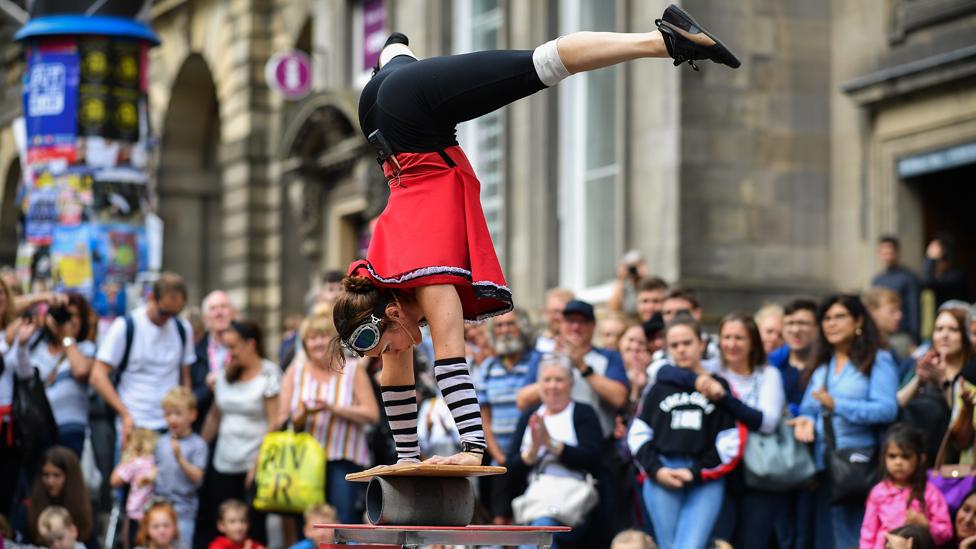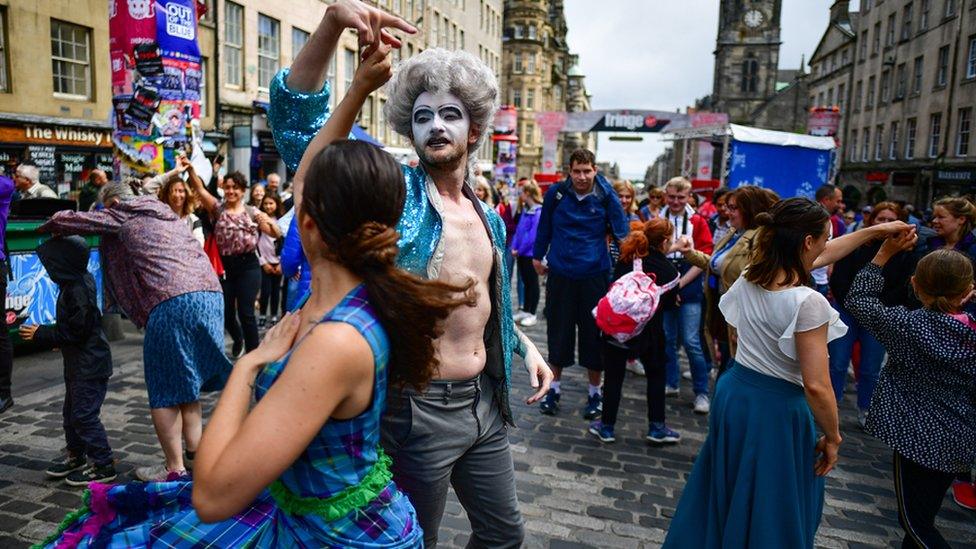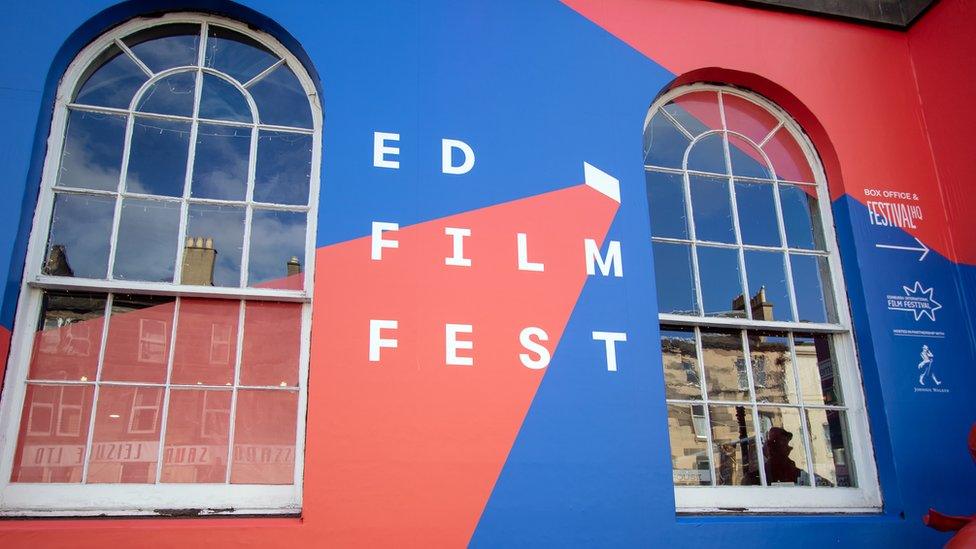Coronavirus: Why the lack of festival fun is a serious business
- Published

GI, Aye Write, the Colonsay Book Festival, Edinburgh Science Festival, Boswell Book Festival. It's easier to list what's NOT on.
All were due to take place in the coming weeks, so it's understandable in the current climate - when our immediate concerns are more basic, about food and health, schools and caring for the elderly - that we should expect full-scale cancellations.
And yet, the news that the next raft of festivals are also being cancelled - the Edinburgh International Film Festival and Glastonbury among them - feels like snuffing out a light at the end of a tunnel.
Not just for those whose jobs depend on it - the creative industries across the UK employ over two million people - but for the communities which host festivals, the audiences who attend them, and the bigger economic boost they bring.
Festivals might seem like a bit of frivolity in dark times (and who doesn't need that) but the 200-plus events staged around Scotland are also a serious business, and a multi-million-pound one at that.
Edinburgh's festivals alone are worth an estimated £313m to the Scottish economy.
As one actor friend put it: "All those who say, you should have got a real job, have to realise the creative industries are worth £111.7bn to the UK economy."

Edinburgh's festivals are worth an estimated £313m to the Scottish economy
And as thousands of us face self-isolation at home, they also provide entertainment and education in the form of books, films, TV and radio programmes and online content.
Festivals are an important celebration, a platform for work and a place to find support, funding and audiences.
Some, like the Edinburgh International Festival and its sister Fringe festival, were established in the shadow of World War Two, a deliberate attempt to promote a "flowering of the human spirit" in the darkest of times.
One of the first orchestras to play was the Vienna Philharmonic, reunited with their conductor Bruno Walter, who left Europe after the Nazi occupation of his homeland. And yet, 73 years later, the festival, which had expected to launch its 2020 programme today, faces similar uncertainty.

LIVE COVERAGE: Latest from BBC Scotland
IN NUMBERS: How the virus has spread in Scotland
EASY STEPS: How to keep safe
A SIMPLE GUIDE: What are the symptoms?
GETTING READY: How prepared is the UK?

Joe Goldblatt is Emeritus Professor of planned events at Queen Margaret University in Edinburgh. He says festivals have faced a number of challenges, from outbreaks of illness to terrorism.
"Something like September 11th brought about a slow shutdown, and the recovery was slow too," he said.
"There is very little in our lifetime to compare this to, but something like the polio pandemic in the 1920s and 30s led to the widescale closure of swimming pools and theatres. The testing of a vaccine took two years and only then could leisure facilities begin to recover."
With most festivals planned up to a year in advance, he says directors can't afford to put off a decision, even a disappointing one.
"The longer the wait, the more confusing it is, and the more harm is done," he says.
Online version
Some - like the Boswell Book Festival and Arbroath 2020, already programmed and booked - have rescheduled. Boswell will now happen in October, Arbroath in April 2021. That means the event will now mark the 701st anniversary of the Declaration of Arbroath, but enables it to maintain a programme which has been months in the making.
Other festivals have restructured their events.
The Alchemy Film and Moving Image Festival, which was due to take place in Hawick at the end of April, will now curate an online version.
The 13th Glasgow Short Film Festival will attempt to reschedule later in the year, but will also programme two films every day from today until 22 March via its website, external.

Roland Gulliver previously worked for the Edinburgh International Book Festival, but he's now director of the Toronto International Festival of Authors. His first event is due to take place in October.
"There are a range of possibilities, the ideal being a full 12-day festival, but it's possible some of it would be online. We'll be looking at ways of reconfiguring the festival to work for authors and audiences, depending on the circumstances at the time," he said.
"The difference is that we're talking about individual authors, not whole orchestras, so we're a bit lighter on our feet. Book festivals are extremely important to publishers, and the whole industry will be keen to do anything to keep them going, even if that's in a very different way.
"There are massive challenges ahead, but the whole idea of festivals, of people coming together, whether that's in person, or online, has never been more important."
Professor Goldblatt agrees. He also believes that loyalty and support for arts organisations will be important in the days ahead.
"When Musikfest in Bethlehem, Pennsylvania, was hit by a tornado, hundreds of thousands of people who had bought tickets were offered their money back, and they told the festival to keep the money for future festivals.
"There's a big difference between purchasing a new hob, and purchasing a ticket for a cultural event. It's an emotional decision, and that emotion is not going to go away any time soon."